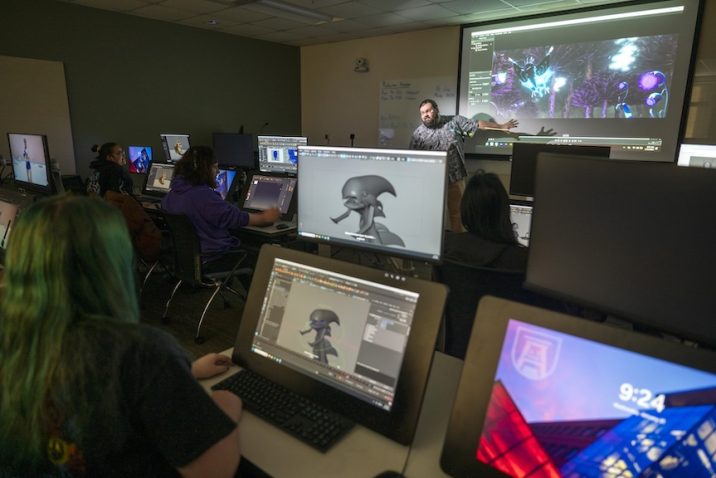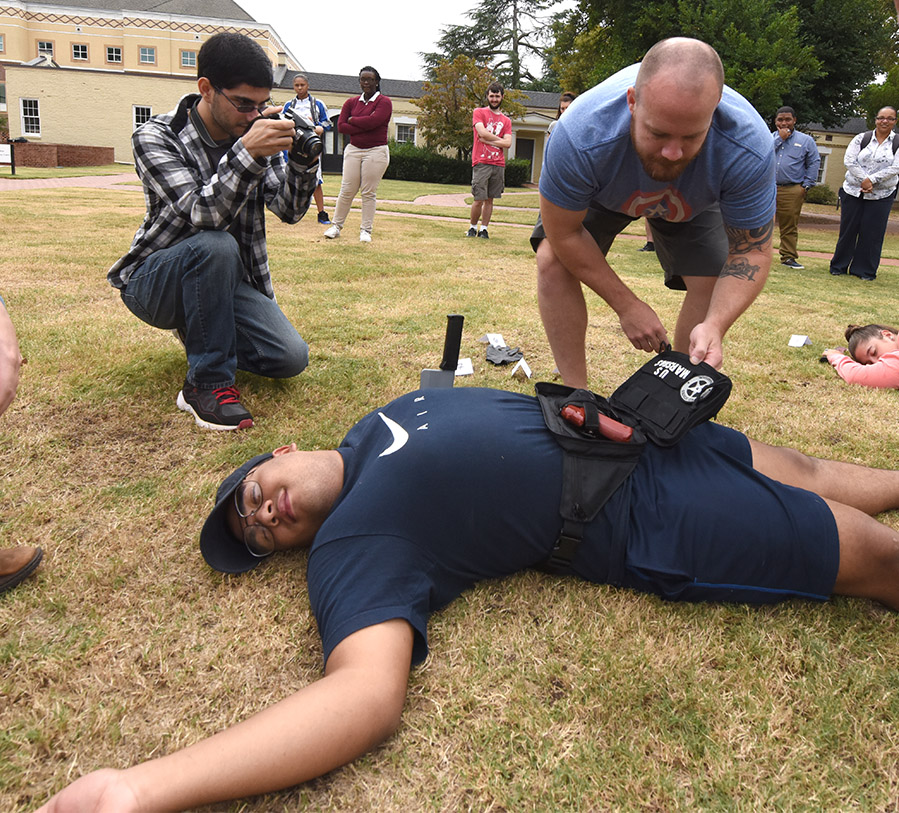Criminal Justice
Do you want to directly impact the safety and welfare of your community through law enforcement, corrections or the judicial system?
You can do that with a Criminal Justice degree. Whether as a defender of rights, an enforcer of laws or as a criminologist examining the causes and prevention of crime, a degree in Criminal Justice gives you the tools you need to help create the equitable world you want to see. The Criminal Justice program from Pamplin College of Arts, Humanities, and Social Sciences’ Department of Social Sciences prepares students for a variety of rewarding career pathways.
Augusta University is one of Georgia’s four public research institutions, and our Criminal Justice degree offers you a one-of-a-kind experience.
Criminal Justice is for you if you consider yourself
Life-Changing
Life-Saving
Education
Want to learn more about the Criminal Justice program at Augusta University?
Request InfoWhat You'll Study
Coursework
In the Criminal Justice program, you will learn core criminal justice concepts and theories, understand criminal behavior and various structures within the criminal justice system, develop an understanding of the administration of justice and the history and philosophy of law enforcement, and more.
Experience-based Education
Outside the Classroom
Criminal Justice students conduct research using the same data sources used by criminologists, learning real-world skills while advancing our understanding of criminal behavior.
Existing relationships with local law enforcement agencies provide valuable opportunities to connect with future colleagues.
Faculty dedication to supporting strong student organizations and encouraging student research ensures Criminal Justice students will graduate with a deep understanding of the environment they’ll encounter upon entering the workforce.
Research & Innovation
Whether you’re an undergraduate or graduate student, you’ll have opportunities to create your own research projects or work with faculty to tackle some of the world’s most complex and pressing challenges.
Research Center
Pamplin College’s Center for Social Science Research involves students as active partners in research projects that assist local public and nonprofit agencies improve their effectiveness.
Student Publications
Student publications are an excellent way to find your voice and strengthen your portfolio, and Pamplin College has a wide range to get involved with.
Clubs & Organizations
Student clubs and organizations help you “plug in” to campus life in a way that can lead to meaningful connections, new interests and resume-enhancing experiences.
Your Future
Career Options
A Criminal Justice degree opens the door for several types of careers, from law enforcement and corrections to crime scene investigation to working with juvenile offenders as a youth correctional counselor. The accelerated Bachelor of Arts in Criminal Justice to Master of Arts in Intelligence and Security Studies or Public Administration opens the door to careers in strategic security policy and intelligence analysis as well as the public and nonprofit sectors.

Why Augusta?
Augusta University’s multidisciplinary Criminal Justice program draws from Sociology, Political Science, English and Psychology to prepare students to work in all aspects of the criminal justice system.
Opportunities to conduct meaningful research with recognized experts.
Graduate with a variety of in-demand job prospects or continue to advanced degrees in Public Administration or Intelligence and Security Studies.

Augusta University students take on the 2026 Global Game Jam
Augusta University students take on the 2026 Global Game Jam
Upcoming on-campus events to honor Black History Month
Upcoming on-campus events to honor Black History Month

